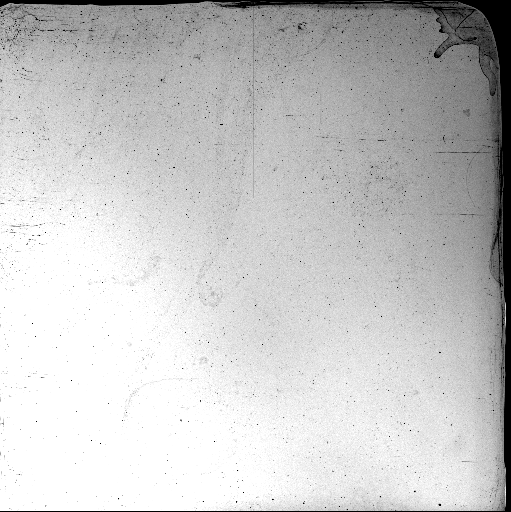
A Failed O2 soak in CCD#4Because this device uses the PPt passivation technology, it requires soaking in oxygen before cooling in order to acheive the best possible QE sensitivity and uniformity. Occasionally, this can fail. In this case, the flat field will be very non-uniform with a number of sensitive patches distributed over a much reduced overall sensitivity. There appear to be two failure modes for the soak, partial and total. In a partial failure, the image appears much like an ordinary flat field, but certain features are considerably more pronounced and the overall sensivity is reduced. In a total failure, the flat field appears radically different, even inverted, compared to the correct flat. Total Failure:A total failure of the O2 soak is obvious. In the image below, circled and at lower left, there are three pronounced areas that look like coffee-cup stains on a table. In a completely failed soak, these will appear brighter than the overall background. 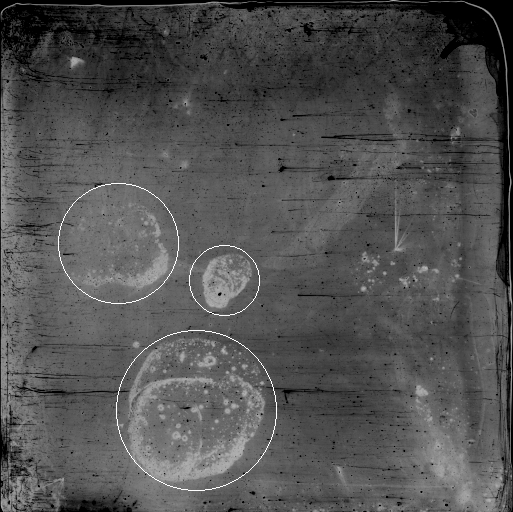
Above is a sky flat in R with a totally failed soak. Below is
another example, this one taken in H 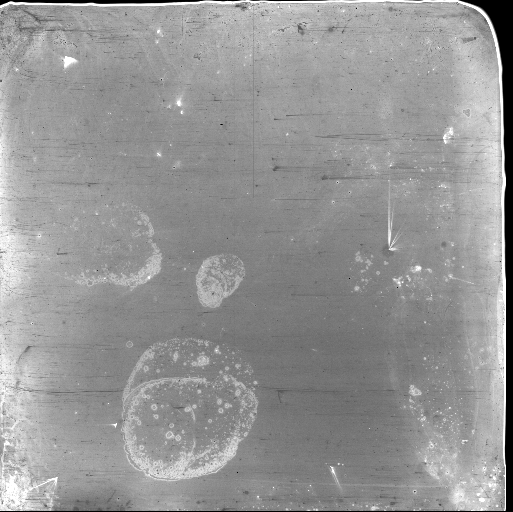
Partial Failure:A partially failed soak is harder to detect because the flat field images look quite similar to the normal flat. Here is an example, an R-dome flat: 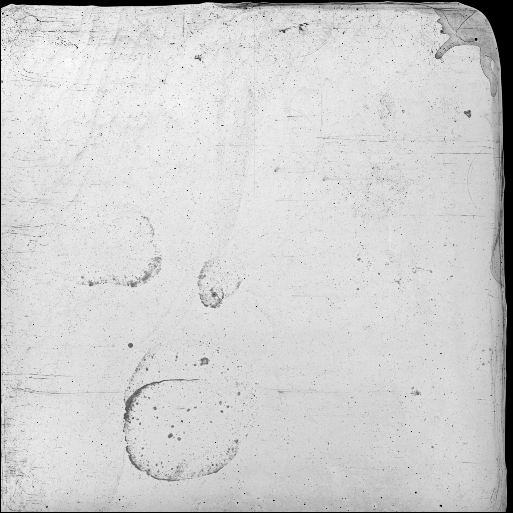 The image seems quite smooth over most of its area, although the three "coffee-cup" stains are still there. Compare to the successful soak image shown below in which the stains are much reduced. Below is a comparison of row 430 in R flat fields from partially and successfully soaked images. Note that the depths of the features are proportionately much greater in the partially soaked case. In general, the coffee-cup stain should not be much less than 90% of the background, or the soak procedure must be repeated. (The smooth variation in the general illumination level of the successfully soaked image is not significant.) 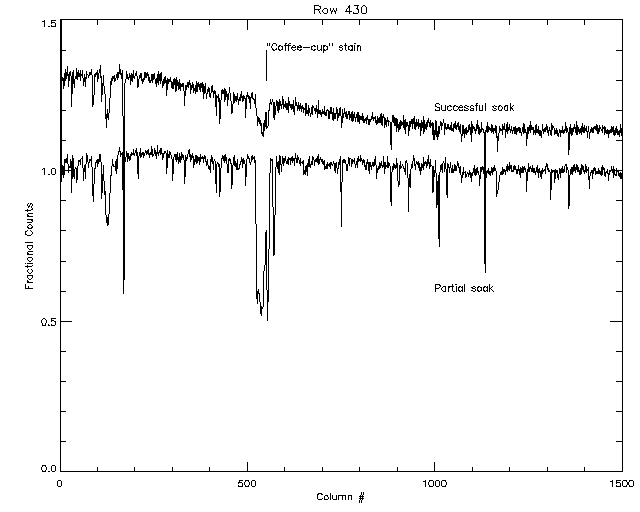
Successful O2 Soak
A dome flat in R with a successful O2 soak.
(Unfortunately, illumination was not very uniform, hence the brighter
region at lower left.) |
||
|
 .
. 